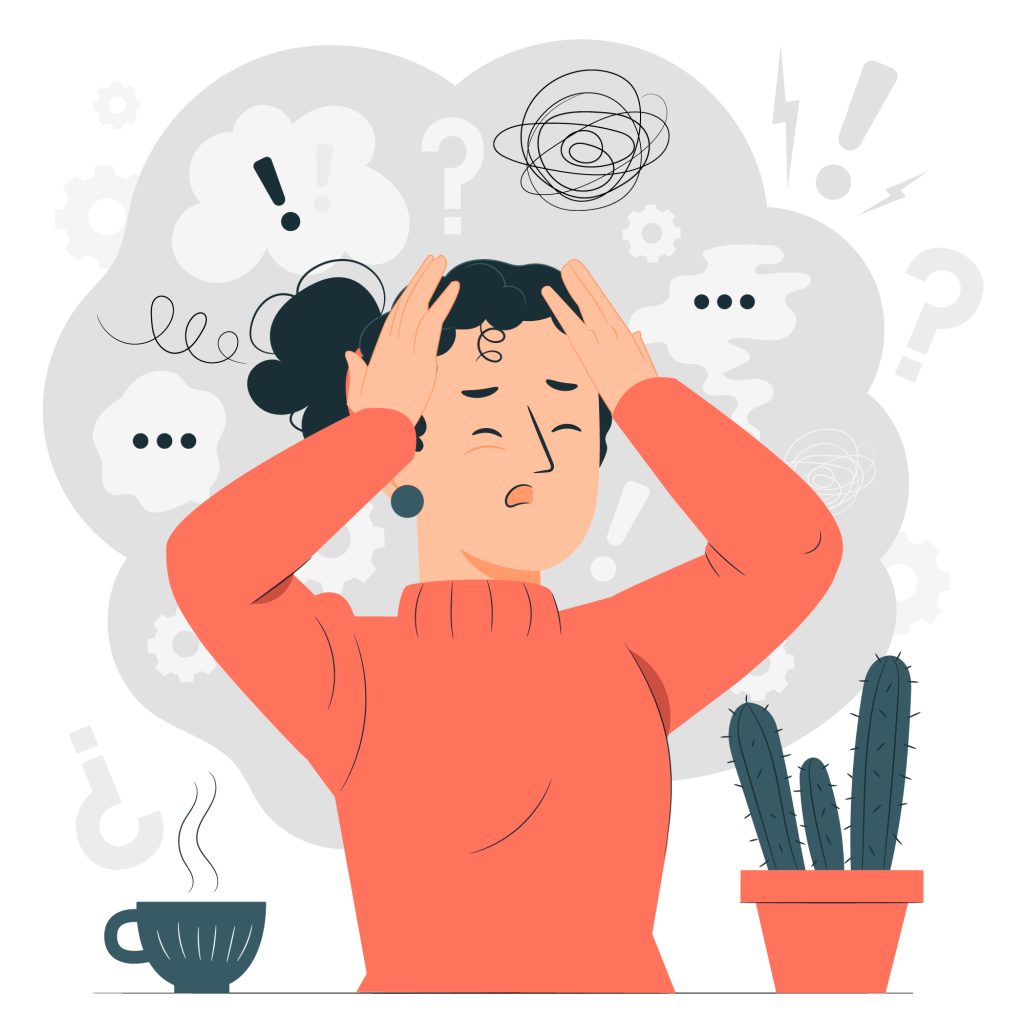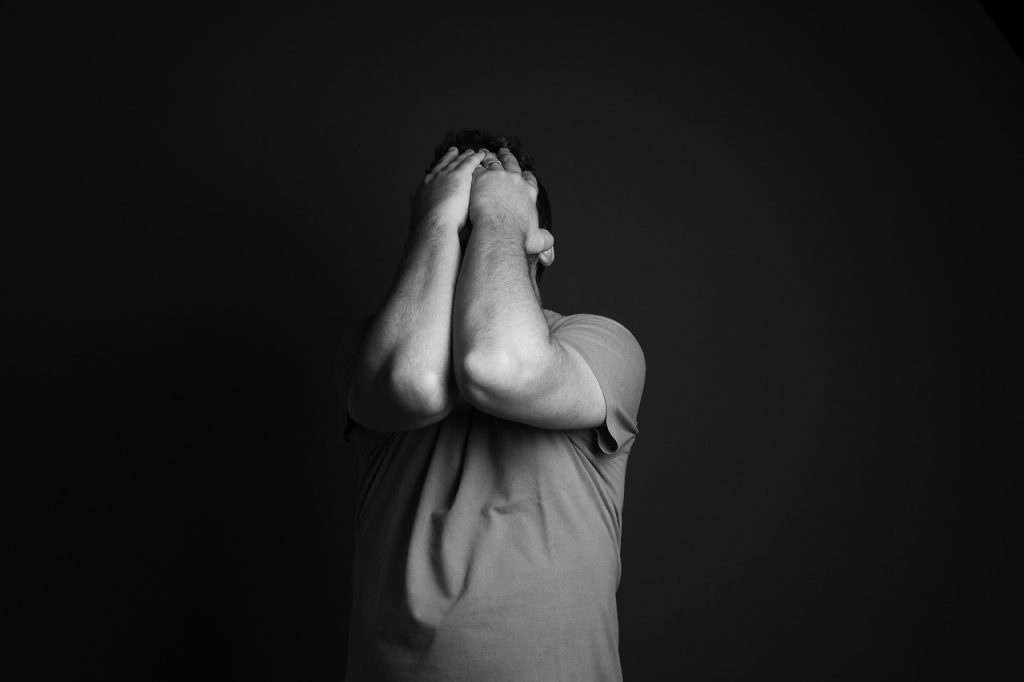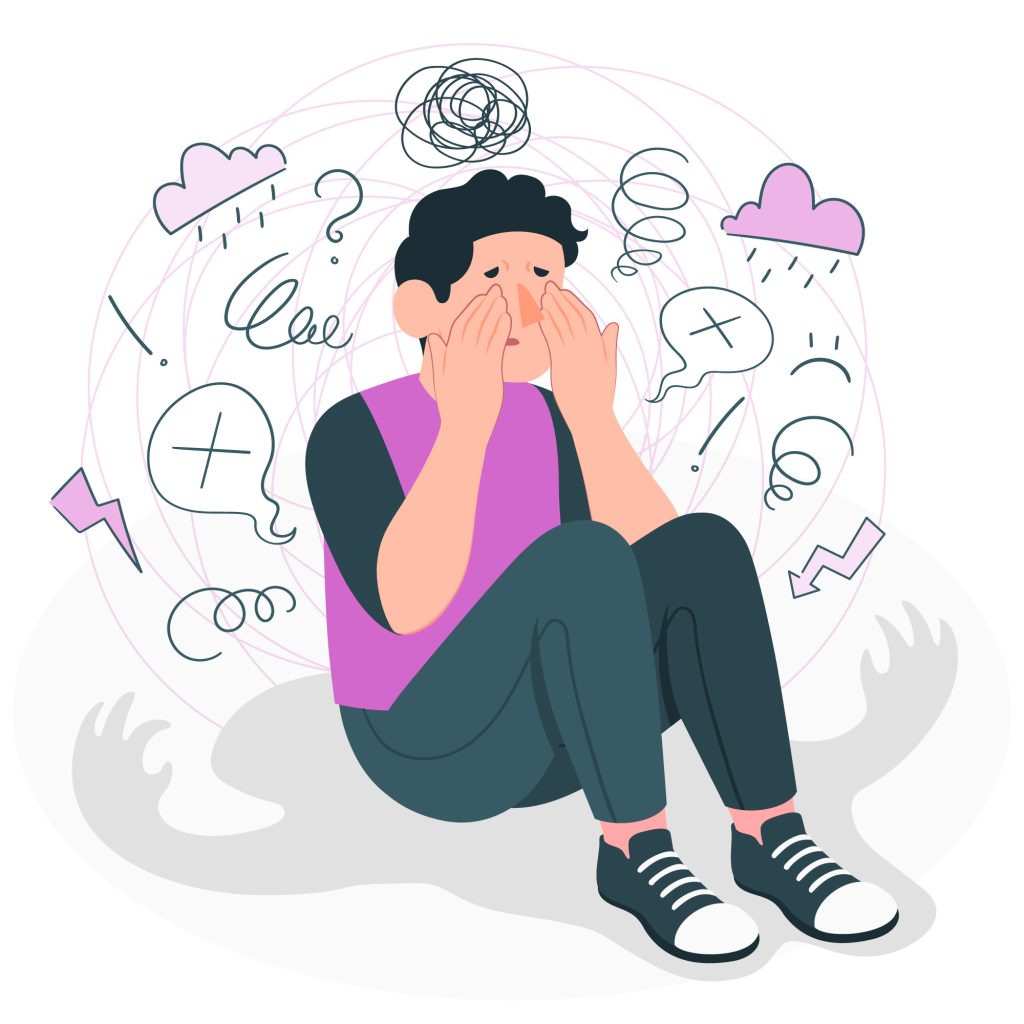Anxiety Symptoms and Treatment
All You Need to Know About Anxiety
Anxiety shows up differently for everyone. For some people, the fear and worry don’t fade—they might even get stronger with time. This is a place to learn what anxiety is, who it can impact, and how to deal with it in everyday life.
How Is Anxiety Diagnosed?
There isn’t just one test to diagnose anxiety. Instead, doctors need to go through a process that includes physical exams, mental health tests, and psychological questionnaires.
Your doctor might start with a physical exam and do blood or urine tests to rule out any other health problems that could be causing your symptoms.
There are also several tests and scales doctors use to measure how much anxiety you’re feeling.
Effective Treatments for Managing Anxiety
Once you’re diagnosed with anxiety, you and your doctor can explore different treatment options to help you feel better and manage everyday life more easily.
Treatment usually falls into three main categories:
- Therapy (Psychotherapy): Talking with a therapist can help you understand your anxiety and learn ways to manage it. One common method is cognitive behavioral therapy (CBT), which teaches you how to change negative thought patterns. Another is exposure therapy, which helps you face your fears gradually.
- Alternative or Complementary Techniques: These include things like mindfulness, yoga, and stress-management strategies. They can be a helpful part of your overall treatment plan.
- Medication: Some people may need medication to manage their symptoms. Doctors might prescribe anti-anxiety or antidepressant medications. These work by adjusting brain chemicals to help improve mood and reduce anxiety.
Working with a mental health professional like a therapist or psychologist can also give you useful tools for coping with stress when it comes up.
Here are some common medications used to treat anxiety:
- SSRIs (Selective Serotonin Reuptake Inhibitors): Such as escitalopram, fluoxetine, and paroxetine. These are often the first choice for long-term treatment.
- SNRIs (Selective Norepinephrine Reuptake Inhibitors): Like duloxetine and venlafaxine.
- Antipsychotics: Such as quetiapine and aripiprazole, sometimes used alongside other meds.
- Benzodiazepines: Like diazepam and clonazepam. These can help quickly, but doctors try to avoid long-term use due to the risk of dependence.
- Anxiolytics: Buspirone is one example that’s used to treat general anxiety.
Anxiety Symptoms and Treatment

Natural Ways to Ease Anxiety
Making some lifestyle changes can really help reduce the stress and anxiety you deal with every day. Most natural remedies focus on taking care of your body, building healthy habits, and cutting out things that may be making anxiety worse.
Some helpful changes include:
- Getting enough sleep
- Practicing meditation or relaxation techniques
- Staying active and exercising regularly
- Eating a balanced, healthy diet
- Avoiding alcohol
- Cutting back on caffeine
- Quitting smoking if you smoke
These small changes can make a big difference over time. Want to dive into how each of these helps with anxiety?
Understanding Anxiety: Causes, Symptoms, and Effects
Anxiety is how your body naturally reacts to stress. It’s that feeling of fear or worry about something that’s going to happen—like going to a job interview or speaking in front of a class on your first day.
But if that anxious feeling sticks around for six months or more, feels really intense, and starts getting in the way of your everyday life, it might be a sign of an anxiety disorder.
Types of Anxiety Disorders and What They Mean
It’s totally normal to feel anxious when you’re moving to a new place, starting a new job, or taking a test. That kind of anxiety doesn’t feel great, but it can actually push you to try harder and do well. This everyday anxiety comes and goes—it doesn’t take over your life.
But with an anxiety disorder, that fear and worry don’t go away. It’s always there, can feel overwhelming, and sometimes even stops you from living your life the way you want to.
You might avoid doing things you enjoy, like taking the elevator, walking across the street, or in serious cases, even leaving your house. If it’s not treated, the anxiety can get worse over time.
Anxiety disorders are actually the most common mental health condition out there. They can affect anyone, but studies show that women are more likely than men to be diagnosed with one.
Different Kinds of Anxiety Disorders Explained
Anxiety can show up in different ways across various disorders. Some of the main types include:
- Panic disorder: This is when you have sudden panic attacks that happen without warning.
- Phobias: An intense fear of a specific thing, situation, or activity.
- Social anxiety disorder: A strong fear of being judged or criticized by others in social settings.
- Obsessive-compulsive disorder (OCD): This is when you have repetitive, irrational thoughts that drive you to do certain actions over and over.
- Separation anxiety disorder: This is a fear of being away from home or from people you care about.
- Illness anxiety disorder: This is constant worry about your health (once called hypochondria).
Also, anxiety can be a symptom of other mental health or medical issues, such as:
- Post-traumatic stress disorder (PTSD): Anxiety that follows a traumatic experience.
- Major depression: People with depression often also experience anxiety.
- Chronic diseases: Conditions like COPD or diabetes can bring on anxiety symptoms.
- Inflammatory conditions: Anxiety can make inflammation worse and lead to conditions like arthritis.
- Substance use disorders: Some people with anxiety may try to self-medicate, which can make the problem worse.
- Chronic pain: People dealing with long-term pain often experience anxiety too.
Recognizing the Symptoms of Anxiety
Anxiety can feel different for everyone. It might feel like you have butterflies in your stomach or a racing heart. You could also feel out of control, like your mind and body aren’t in sync.
Sometimes, anxiety causes general feelings of fear or worry, and other times, it’s a specific fear of a place or event. In some cases, it can lead to a panic attack.
Common symptoms of anxiety include:
- Racing or anxious thoughts that are hard to control
- Restlessness
- Trouble focusing or concentrating
- Difficulty falling asleep
- Feeling tired or drained
- Irritability
- Unexplained aches or pains
Your anxiety might show up differently than someone else’s, so it’s important to understand how it might feel for you.
Anxiety Symptoms and Treatment

Understanding the Triggers of Anxiety
Experts aren’t completely sure what causes anxiety, but they think it’s a mix of different factors.
Some possible causes of anxiety include:
- Stress
- Other health issues like depression or diabetes
- Having close family members with generalized anxiety disorder
- Childhood trauma or abuse
- Substance use
- Certain situations, like surgery or a dangerous job
Researchers also believe that anxiety comes from the parts of the brain that control fear and store emotional or fear-related memories.
Who is More Likely to Experience Anxiety Disorders?
Different types of anxiety come with their own risk factors, but some general things can increase the chances of developing anxiety, such as:
- Personality traits: Being shy or nervous as a child can make someone more likely to experience anxiety later in life.
- Life experiences: Going through stressful or negative events can increase the risk.
- Genetics: If someone in your family has anxiety, you’re more likely to develop it too. Around 25% of people with anxiety have a close family member with the same condition.
- Other health issues: Problems like thyroid disorders and other health conditions can make anxiety more likely.
- Stimulants: Things like caffeine, certain substances, and medications can make anxiety symptoms worse.
Understanding Panic Attacks: Causes and Symptoms
A panic attack is a sudden and intense feeling of fear that can hit quickly and peak within 10 to 20 minutes. The cause of the fear can be clear or unknown.
The physical symptoms of a panic attack can feel like a heart attack. If you think you’re having a heart attack or a mental health emergency, the symptoms may get worse. A common fear during a panic attack is worrying about being judged by others, especially if it happens in public.
Panic attacks can be different for everyone, and the symptoms can change over time. Not everyone with anxiety experiences the same symptoms.
Common symptoms of a panic attack include:
- Chest pain
- Feeling like you’re choking
- Fear of losing control
- Feeling like something bad is about to happen
- Sweating, chills, or hot flashes
- Shaking
- Numbness or tingling in your hands, feet, or face
- Upset stomach or nausea
- Shortness of breath
- Fear of dying
If you have repeated panic or anxiety attacks, it could be a sign of panic disorder.
Understanding Anxiety and Stress
Stress and anxiety are similar, but they’re not the same. Stress is a natural reaction to something specific, like a big test, presentation, wedding, or life change. Once the event is over, the stress usually goes away.
Anxiety, however, sticks around even after the event or trigger is gone, and sometimes there isn’t a clear cause at all. Anxiety might require treatment to get better.
Both stress and anxiety can improve with exercise, good sleep, and a balanced diet. But if they don’t get better and you’re struggling to manage everyday tasks, a mental health professional can help you find a treatment plan.
When anxiety shows up, it can cause physical symptoms like:
- Dizziness
- Fatigue or tiredness
- Heart palpitations
- Muscle tension or aches
- Shaking
- Dry mouth
- Excessive sweating
- Stomachaches
- Headaches
- Insomnia (trouble sleeping)
Stress and anxiety aren’t always bad. In fact, they can motivate you to complete tasks or face challenges. However, if these feelings stick around for a long time, they can start to interfere with your daily life. If that happens, it’s important to seek treatment.
If left untreated, anxiety and depression can lead to long-term health problems, like heart disease.
How Anxiety and Depression Are Connected
If you’re dealing with anxiety, there’s a chance you might also be feeling depressed. Even though they’re different, anxiety and depression often show up together.
Sometimes, anxiety is a part of major depression. Other times, having an anxiety disorder can make depression worse.
The good news is that both can usually be treated in similar ways—like talking to a therapist, taking medication, and making healthy lifestyle changes.
Anxiety Symptoms and Treatment

Helping Kids Cope with Anxiety
It’s normal for kids to feel anxious sometimes. In fact, the CDC says about 10% of children and teens between the ages of 3 and 17 have been diagnosed with anxiety.
As children grow, most of their fears and worries should fade away. However, if a child continues to have intense fears—like being afraid to be away from their parents—or if anxiety is affecting their everyday life, it may be considered an anxiety disorder.
In some cases, anxiety can become long-lasting, causing kids to avoid socializing with friends or family.
Common signs of anxiety in children include:
- Anger or irritability
- Trouble sleeping
- Intense fear or worry
- Feeling tired often
- Headaches or stomachaches
Treating anxiety in kids usually involves talk therapy, like cognitive behavioral therapy (CBT), and sometimes medication.
Supporting Teens with Anxiety
Teens can feel anxious for many reasons—tests, college visits, and even first dates can all cause stress. But if a teen feels anxious a lot or experiences anxiety symptoms regularly, they might have an anxiety disorder.
Common signs of anxiety in teens include nervousness, shyness, isolating themselves, or avoiding certain situations. Anxiety can also lead to behaviors like acting out, doing poorly in school, skipping social events, or even using alcohol or drugs.
Sometimes, anxiety in teens is linked with depression, so it’s important to diagnose both to make sure the treatment helps with all the symptoms.
The most common treatments for teen anxiety are therapy (talk therapy) and medication, which can also help with depression symptoms.
Anxiety and Alcohol:
If you often feel anxious, you might think having a drink will help calm your nerves. Alcohol is a sedative, which means it can slow down your nervous system and make you feel more relaxed.
However, some people with anxiety disorders turn to alcohol or other substances regularly to cope, which can lead to dependency or addiction.
In some cases, treating an alcohol or drug problem may need to happen first before addressing the anxiety. Unfortunately, long-term alcohol or drug use can actually make anxiety worse.
Can Certain Foods Help Manage Anxiety?
Doctors often treat anxiety with medication and therapy, but making lifestyle changes, like getting enough sleep and staying active, can also help. Some research also suggests that certain foods may improve brain health and reduce anxiety, especially for people who experience it often.
These helpful foods include:
- Flax and chia seeds
- Fatty fish like mackerel and salmon
- Turmeric
- Vitamin D
- Magnesium
- Tryptophan (found in turkey and other foods)
Preventing Anxiety:
For Children and Teens:
We don’t know exactly why anxiety develops in children and teens, but there are helpful programs that can prevent it, including:
- Suicide prevention
- Bullying prevention
- Youth violence prevention
- Child abuse prevention
- Mental health programs
As a parent, it’s important to have open conversations with your child and guide them toward healthy decisions. If a child or teen is struggling with anxiety due to family issues, family therapy can be a great option since they might not feel comfortable talking about their feelings on their own.
For Adults:
There are several ways to prevent anxiety or reduce its symptoms:
- Avoidance: Avoiding certain situations can reduce stress, but this is only a short-term fix. Long-term treatment is more effective.
- Stress management and mindfulness: These techniques help prevent stress from building up.
- Limit caffeine: Too much caffeine can make anxiety worse.
- Support groups: Talking to others who are dealing with similar issues can provide helpful coping strategies.
- Therapy: Working with a therapist can help you manage stress and fears that lead to anxiety.
- Doctor check-ins: Regularly checking in with your doctor about any medications you’re taking can help make sure you’re getting the right treatment and avoid anxiety-related side effects.
Disclose:
Anxiety can be treated with medication, therapy, or both. Some people with mild anxiety might choose not to seek treatment and manage it on their own, especially if they can avoid triggers. However, avoiding these triggers may make anxiety worse in the long run.
The good news is that even severe anxiety disorders can be treated. While anxiety might not completely disappear, with the right treatment, you can learn how to manage it and live a happy, healthy life.

